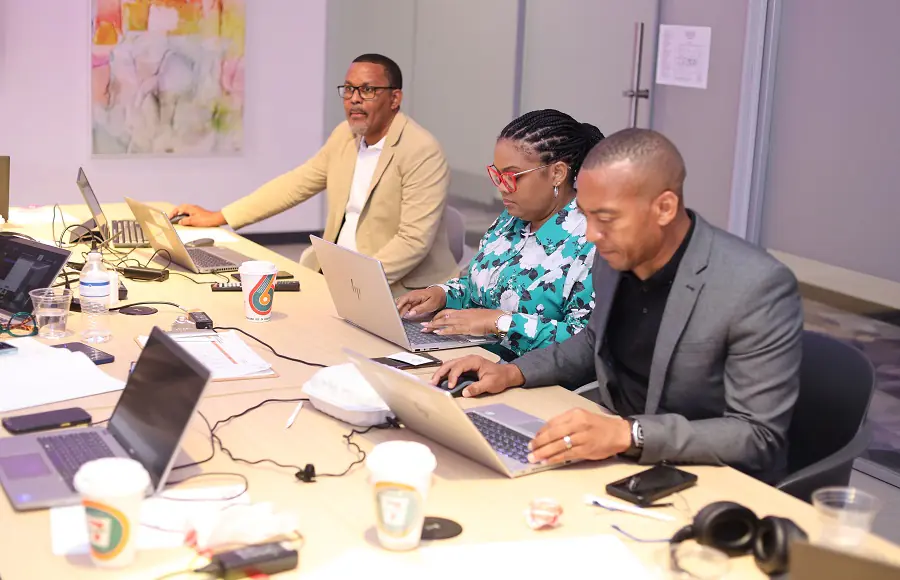The Digital OECS Harmonised Primary Curriculum (D-OHPC) is one step closer to its finalisation, after the successful hosting of the Digital Curriculum Hackathon, from September 3-5, 2024. This pioneering educational event marks a significant milestone in the Organisation of Eastern Caribbean States (OECS) Commission’s drive to standardize and elevate educational quality across the OECS Member States, ensuring that all children have access to a culturally relevant, high-quality curriculum. The D-OHPC will serve as a comprehensive guide to instruction, fostering the competencies that will prepare young OECS learners for an ever-changing world with increasing demands on critical thinking, innovation, creativity and cultural sensitivities, among others.
The D-OHPC will promote regional integration and effective pedagogical practices, providing educators with extensive multimedia resources to enhance their teaching. By offering a flexible, adaptable, and accessible digital platform, this curriculum will enable blended learning and provide educators with interactive features that support diverse instructional environments. It will also include both online and offline formats to accommodate inconsistent internet access, ensuring all educators have the necessary resources to support learning.
The OECS PEARL Digital Curriculum Hackathon brought together fourteen (14) young, talented, brilliant minds from across the OECS region, with expertise in computer coding, software engineering, digital marketing, virtual and augmented reality, artificial intelligence, as well as other areas of technology. These specialists worked in collaboration with education specialists from the region and officials of the OECS Commission’s Education Development Management Unit. The power team participating in the hackathon developed innovative digital solutions for the curriculum’s transformation. The participants focused on creating dynamic, interactive educational tools, designing a centralized repository for the curriculum, and integrating Artificial Intelligence (AI) conversational tools to assist educators with lesson planning. A key focus was on devising mechanisms to support teachers by expediting and simplifying some of their most difficult teaching requirements. Specific attention was given to tools to support students with special education needs.
The hackathon was hosted in partnership with Google in recognition of the critical need to identify existing tools that will power the curriculum to create an immersive and authentic experience for learners. The OECS Commission will continue to explore the opportunities for partnership to ensure the most sustainable and fit-for-purpose response to educational needs in the OECS.
The OECS Commission is thrilled with the innovative contributions from the hackathon, which accelerate the digital transformation of the D-OHPC. The Commission congratulates the experts who partnered in the hackathon and looks forward to the continuing development of products and tools to enhance the new digital curriculum.







